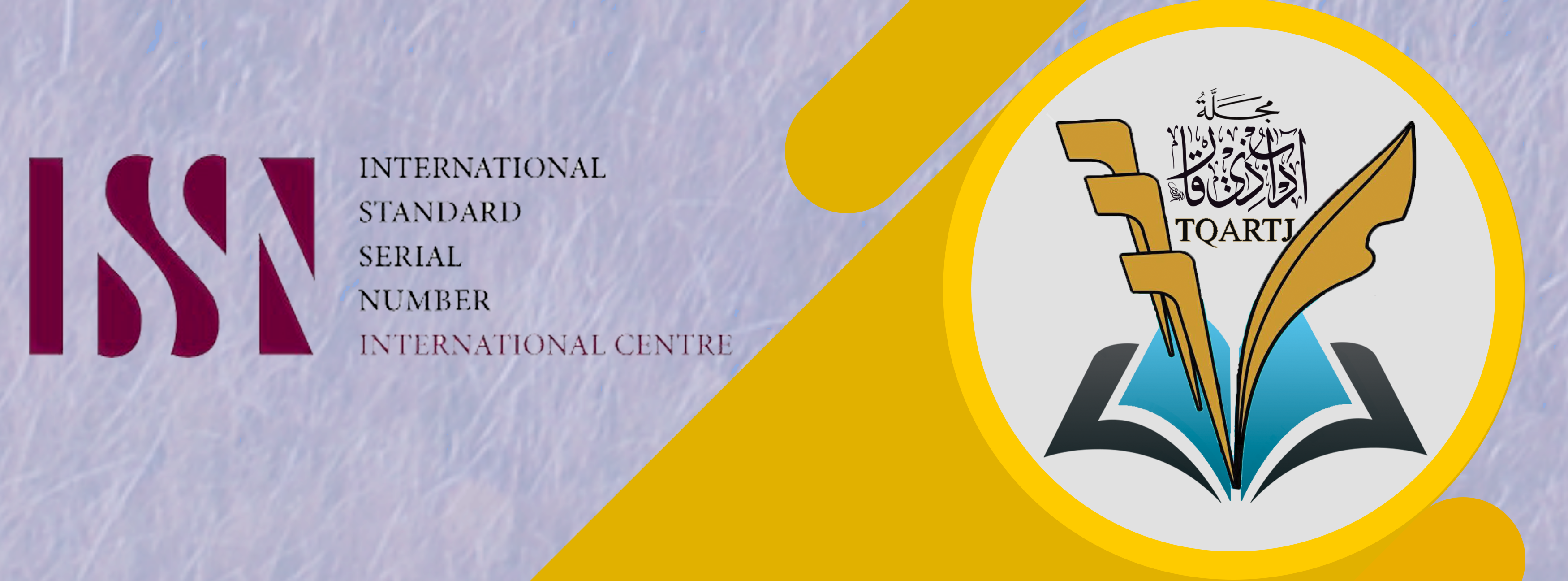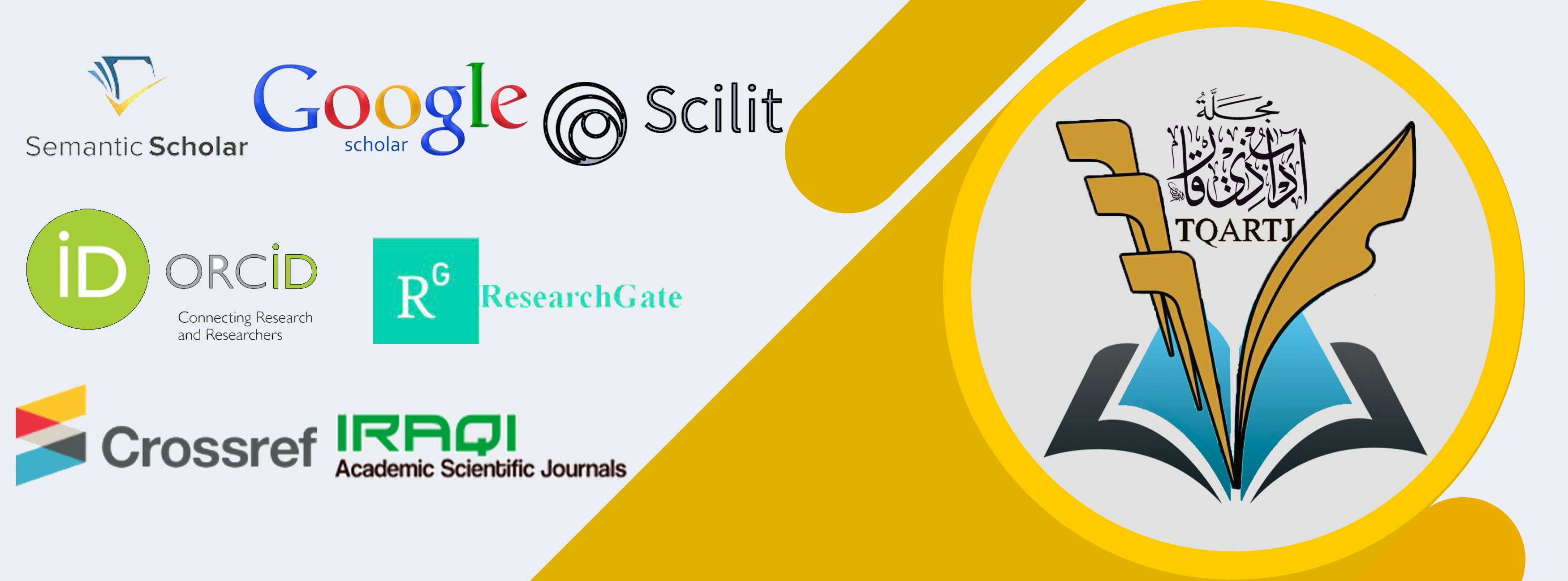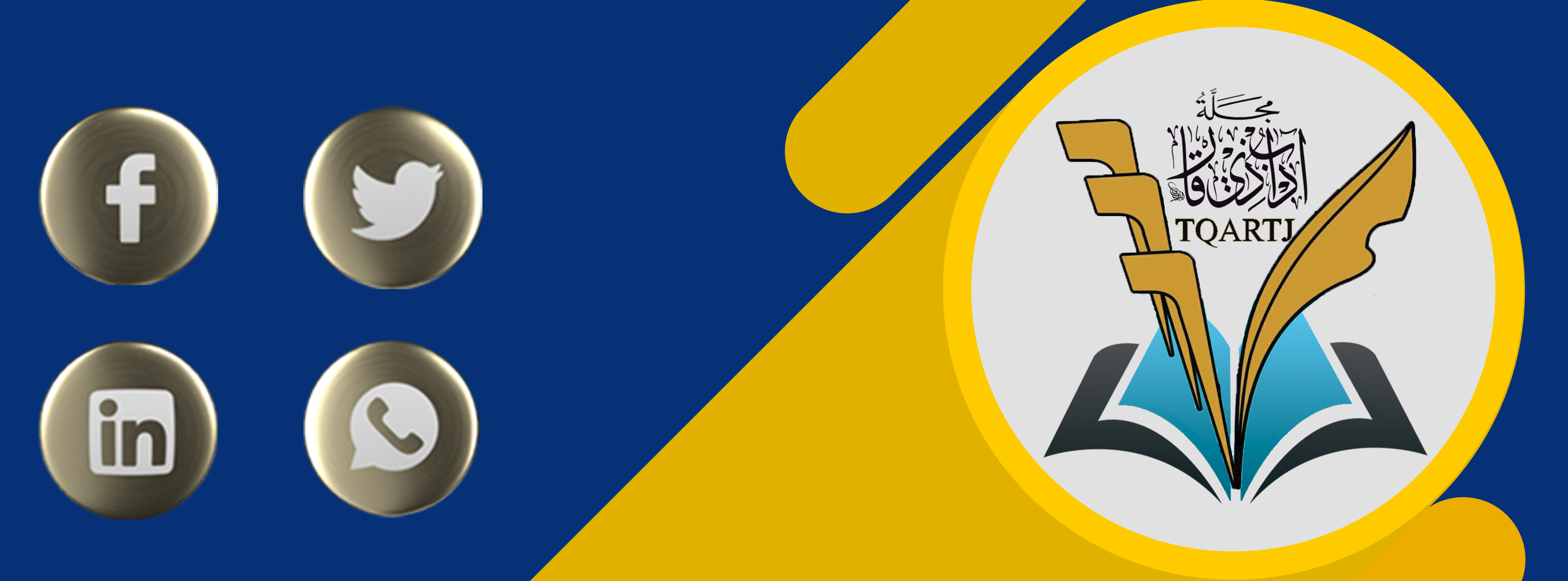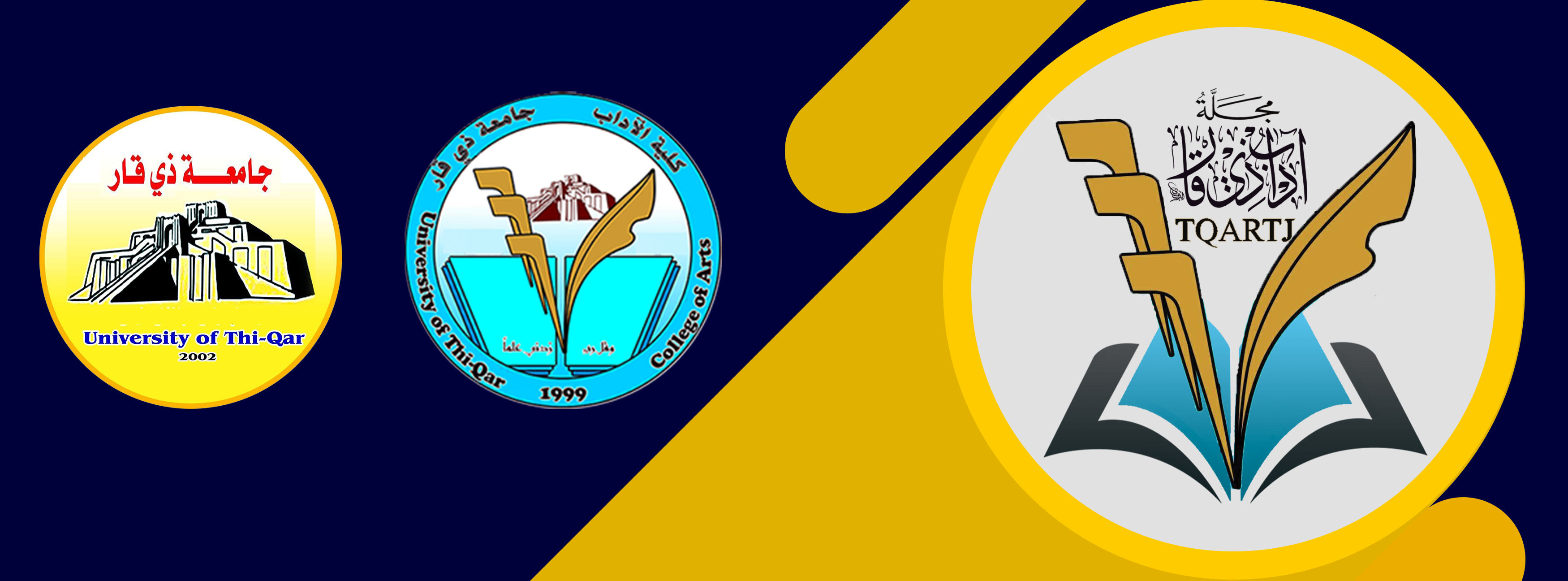هجرات النبي إبراهيم الخليل(ع) في القرآن الكريم والتوراة
DOI:
https://doi.org/10.32792/tqartj.v2i42.444الكلمات المفتاحية:
هجرات، النبي ، إبراهيم الخليل(ع) ، القرآن الكريم ، التوراةالملخص
تشكل هجرة الأنبياء(ع) في القرآن الكريم والتوراة أهمية كبيرة وواسعة في حركة التاريخ وذلك لأنهم اثروا تأثيراً كبيراً ومباشراً في التاريخ على مدى العصور وقدموا من خلال هجراتهم الكثيرة والعديدة دوراً هاماً ومؤثراً في مسيرة الحضارة الإنسانية. فالهجرة شأنها شان الامور الاجتماعية قد تكون للخير وقد تكون للشر فقد يهاجر الانسان بغية الوصول إلى اهداف شرعية أو غير شرعية أو مصالح انية أو وقتية فقد يهاجر لهدف سامي كحفظة للدين أو هداية الناس وهذا ما اكدت عليه آيات قرآنية متعددة فالبحث في دراسة هجرات النبي إبراهيم الخليل(ع) انموذجاً إلى الاماكن التي هاجر اليها لغرض نشر رسالته السماوية ورغم قلة المعلومات التي تخص هجرات الانبياء وقلة الدراسات التاريخية القديمة المتخصصة بعلم الاثار حول الاخبار التي وردت عن هجرات الانبياء واعتمادها على الروايات الاخبارية وما يشوب بعضها من الاساطير والاسرائيليات, وما تخللها من تزوير لبعض الحقائق التاريخية.
التنزيلات
المراجع
The Holy Quran
The Bible (Old Testament)
Primary Sources:
Al-Bukhari (Abu Abdullah Muhammad ibn Ismail) (d. 870 CE):
Sahih Al-Bukhari, edited by Mahmoud Muhammad Mahmoud (2nd edition, published by Muhammad Ali Bayoud, Dar Al-Kutub Al-Ilmiyya, Beirut, 1423 AH/2002 CE).
Al-Baghawi (Abu Muhammad Muhammad al-Husayn ibn Saud) (d. 1116 CE):
Tafsir Al-Baghawi, edited by Khalid Abdul Rahman (Dar Tayyiba, 1409 AH/1989 CE).
Al-Baydawi (Nasir al-Din Abu al-Khair Abdullah ibn Umar ibn Muhammad al-Shirazi) (d. 1291 CE):
Tafsir Al-Baydawi, introduction by Muhammad Abdul Rahman al-Marashli (1st edition, Dar Ihya Al-Turath Al-Arabi, Beirut, 1418 AH/1997 CE).
Al-Tha’labi (Abd al-Rahman ibn Muhammad ibn Mukhlif Abu Zaid al-Tha’labi) (d. 1470 CE):
Al-Jawahir al-Hasan fi Tafsir al-Quran, edited by Ali Muawwad and Adel Abdul Mawjud (1st edition, Dar Ihya Al-Turath Al-Arabi, 1418 AH/1997 CE).
Ahmad ibn Muhammad ibn Ibrahim al-Tha’labi (d. 1035 CE):
Arayis al-Majalis (printed by Matba’ al-Haidari, 1295 AH/1878 CE).
Ibn al-Jawzi (Abu al-Faraj Jamal al-Din Abd al-Rahman ibn Muhammad) (d. 1201 CE):
Al-Muntazam fi Tarikh al-Muluk wal-Umam (2nd edition, 1415 AH/1995 CE).
Abu Hanifa (Ahmad ibn Dawud al-Dinawari) (d. 895 CE):
Al-Akhbar al-Tawal, edited by Abdel Monem Amer, reviewed by Dr. Jamal al-Din al-Shayyal (1st edition, Dar Ihya Al-Kutub Al-Arabi, Cairo, 1379 AH/1960 CE).
Ibn Hayyan al-Andalusi (Muhammad ibn Yusuf ibn Ali ibn Yusuf ibn Hayyan) (d. 1344 CE):
Tafsir al-Bahr al-Muhit (1st edition, Dar al-Fikr, Beirut, 1420 AH/200 CE).
Ibn Khaldun (Abd al-Rahman Muhammad) (d. 1406 CE):
Tarikh Ibn Khaldun, edited by Alal al-Farsi and others (2nd edition, Egypt, Nahdat al-Nahda Press, 1354 AH/1936 CE).
Al-Razi (Abu Abdullah Muhammad ibn Umar ibn al-Hasan ibn al-Husayn) (d. 1209 CE):
Mafatih al-Ghayb (3rd edition, Dar Ihya Al-Turath Al-Arabi, Beirut, 1420 AH/1999 CE).
Al-Mas’udi (Abu al-Hasan Ali ibn al-Husayn ibn Ali al-Mas’udi) (d. 958 CE):
Muruj al-Dhahab wa Ma’adin al-Jawhar, indexed by Yusuf As’ad Dagher (1st edition, Dar al-Andalus, Beirut, 1393 AH/1973 CE).
Al-Tabarsi (Al-Fadl ibn al-Hasan) (1164 CE):
Majma’ al-Bayan fi Tafsir al-Quran (published by Dar Al-Ilm, Beirut, Lebanon).
Al-Tabari (Muhammad ibn Jarir ibn Yazid ibn Kathir ibn Ghalib) (d. 922 CE):
Al-Tabari (Muhammad ibn Jarir al-Tabari):
o Al-Jami’ al-Bayan 'an Ta’wil Ayat al-Quran: A comprehensive exegesis of the Quran, compiled by Al-Tabari. It covers various aspects of interpretation and is a valuable resource for understanding the Quranic text12.
Al-Tusi (Abu al-Hasan Muhammad ibn al-Hasan ibn Ali):
o Al-Tafsir al-Tusi: A commentary on the Quran by Al-Tusi, focusing on its interpretation and legal rulings34.
Al-Qurtubi (Abu Abdullah Muhammad ibn Ahmad al-Ansari):
o Al-Jami’ li Ahkam al-Quran: A comprehensive work by Al-Qurtubi that covers legal rulings derived from the Quranic verses. It provides insights into various aspects of Islamic jurisprudence5.
Ibn Kathir (Abu al-Fida’ Isma’il ibn Umar al-Qurashi al-Dimashqi):
o Tafsir al-Quran al-Azim: A renowned exegesis by Ibn Kathir, providing detailed explanations of the Quranic verses. It is widely studied and respected[6][16].
o Qisas al-Anbiya’ (Stories of the Prophets): Ibn Kathir’s compilation of narratives about the prophets, their lives, and their missions1.
Al-Nasafi (Abu al-Barakat Abdullah ibn Ahmad ibn Mahmud):
o Madarik al-Tanzil wa Haqaiq al-Ta’wil: A work by Al-Nasafi that combines exegesis and legal rulings based on the Quranic verses7.
Yaqut al-Hamawi (Shihab al-Din Abu Abdullah):
o Mu’jam al-Buldan (The Dictionary of Countries): Yaqut’s extensive geographical encyclopedia, covering various regions and their histories2.
Al-Ya’qubi (Ahmad ibn Ishaq ibn Ja’far):
o Tarikh al-Ya’qubi (The History of Al-Ya’qubi): A historical work by Al-Ya’qubi, providing insights into the early Islamic period and various events.
Additionally, there are secondary sources that provide valuable information:
Al-Alusi (Shihab al-Din Mahmoud ibn Abdullah al-Husayni):
o Ruh al-Ma’ani fi Tafsir al-Quran al-Azim: A comprehensive exegesis by Al-Alusi, focusing on spiritual and linguistic aspects of the Quranic text[9][21].
Al-Badrawi (Rushdi):
o Qisas al-Anbiya’ wa al-Tarikh (Stories of the Prophets and History): Al-Badrawi’s work on the lives of prophets and historical events.
“Sayed Al-Mursalin” (The Master of Messengers):
o Author: Jafar ibn Muhammad.Publisher: Islamic Publishing Institute, Qom, Iran.
“The Life of the Prophet Muhammad” (Translated by Muhammad Muhammad Faraj):
o Author: R.F. Boudali.Translator: Abd al-Hamid Judah al-Sahar.Publisher: Maktabat Misr, Cairo, 1419 AH / 1998 CE.
“Arabs and Jews in History” (Second Edition):
o Author: Ahmed Naseem Sawsa.Publisher: Al-Arabi for Printing, Damascus, 1393 AH / 1973 CE.
“Dictionary of Palestinian Places” (First Edition):
o Author: Muhammad Muhammad Sharab.Publisher: Dar al-Ma’mun for Heritage, Damascus, Beirut, 1407 AH / 1987 CE.
“Torah History and History” (Fifth Edition):
o Author: Isma’il Nasser al-Samadi.Publisher: Dar Alaa al-Din, Damascus, 2005 CE.
“Introduction to Ancient Civilizations” (Second Edition):
o Author: Baqir Taha.Publisher: Publications of Dar al-Mu’allimin al-A’la, 1375 AH / 1956 CE.
“Names and Designations: Palestinian, Arab, and Foreign” (First Edition):
o Author: Abdullah Abu Alam.
Publisher: Dar al-Falah for Publishing and Distribution, 1434 AH / 2012 CE.
“Encyclopedia of Islamic Thought” (First Edition):
o Author: Abbas Mahmoud al-Aqqad.Publisher: Dar al-Kitab al-Arabi, 1391 AH / 1971 CE.
“The Disagreement and Agreement between the Gospel of Barnabas and the Four Gospels”:
o Author: Muhammad Abd al-Rahman Awwad.Publisher: Dar al-Bashir for Printing, Cairo, 1423 AH / 2002 CE.
“Tafsir al-Safi” (Commentary on the Quran):
o Author: Mohsen bin Murtada al-Kashani.Translator: Hussein al-Alami.Publisher: Al-Hadi Printing House, Qom, 1416 AH / 1995 CE.
“Usul al-Iman fi Qissat Ibrahim (AS)” (Foundations of Faith in the Story of Abraham):
o Author: Fawzia Mahmoud Abdul Rahman Al-Milfouh.Thesis for Master’s Degree.University: Islamic University, Gaza.Faculty: Faculty of Religious Studies.Completion Date: 1430 AH / 2009 CE.
“Ayam al-Hyksos” (The Days of the Hyksos):
o Author: Ahmed Badawi.Published in the Egyptian Historical Magazine.Volume 1, Issues 1 and 2.Egypt, 1367 AH / 1948 CE.
“Ibrahim al-Khalil (AS): Al-Huwiyya al-Tarikhiyya” (Abraham the Friend: Historical Identity):
o Published Research in the Journal of Historical Studies.College of Education for Women, University of Basra.Issue 9, September 2010 CE.
“Khalk al-Nabi Adam (AS) fi al-Quran al-Kareem” (The Creation of Prophet Adam (AS) in the Noble Quran):
o Published Research in the Journal of Historical Studies. Issue 23, December 2017 CE.
التنزيلات
منشور
إصدار
القسم
الرخصة
الحقوق الفكرية (c) 2023 د. جواد كاظم جاسم

هذا العمل مرخص بموجب Creative Commons Attribution 4.0 International License.
تطبق المجلة رخصة المشاع الابداعي (a Creative Commons Attribution 4.0 International) . تسمح هذه الرخصة للمؤلفين بالاحتفاظ بحقوق النشر لأوراقهم. ولكن هذه الرخصة تسمح لأي مستخدم بتحميل، طباعة، استخراج، إعادة استخدام، أرشفة، وتوزيع المقال، طالما يتم إعطاء الائتمان المناسب للمؤلفين ومصدر العمل. تضمن الرخصة أن يكون المقال متاحًا على نطاق واسع قدر الإمكان وتضمين المقال في أي أرشيف علمي.



















